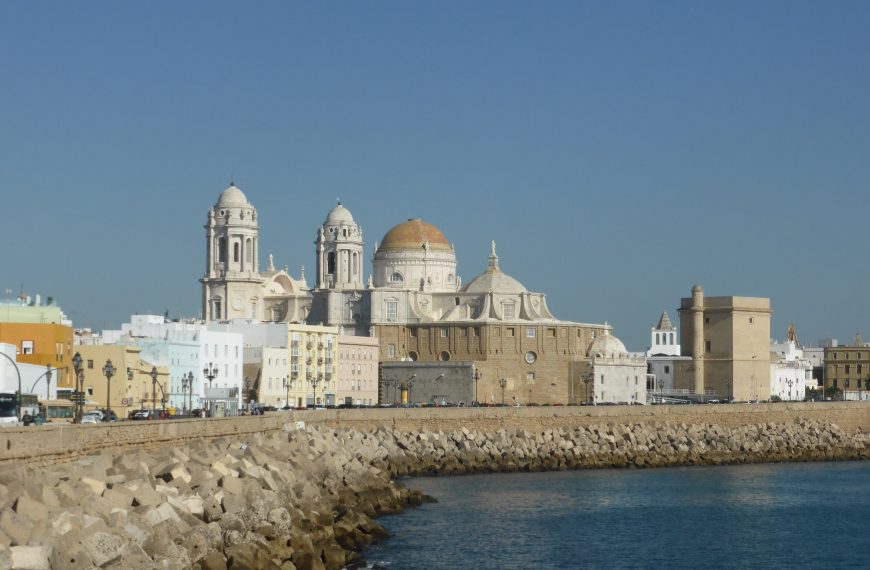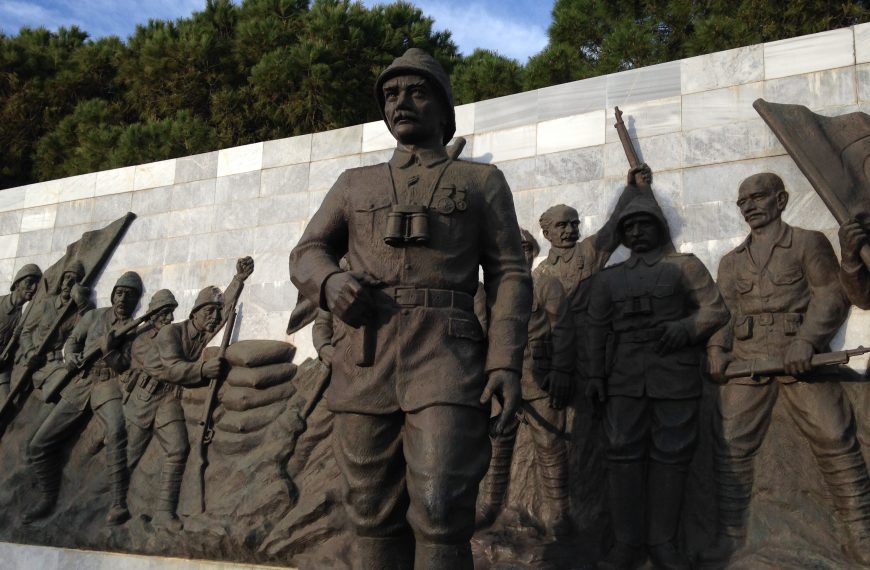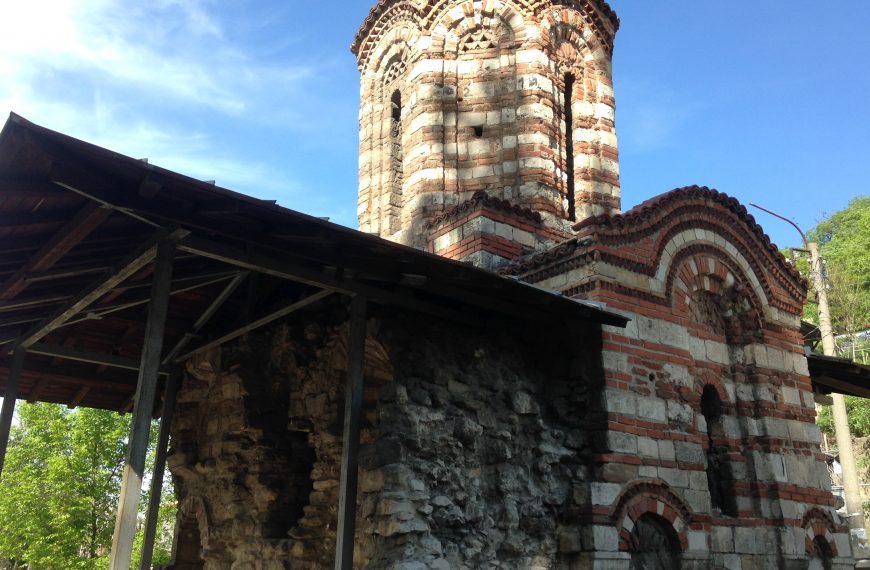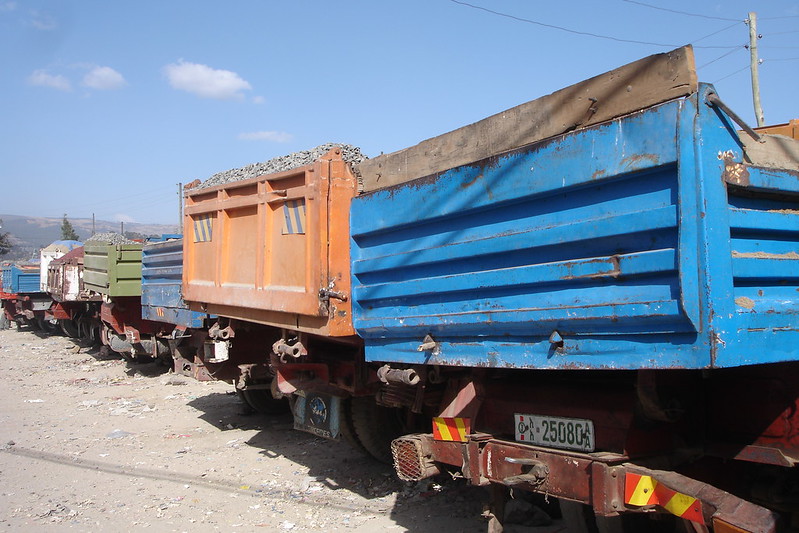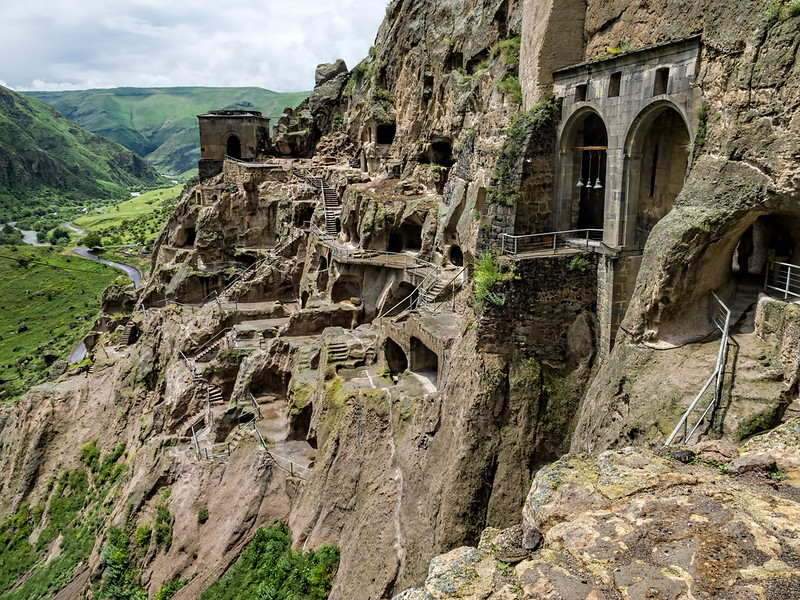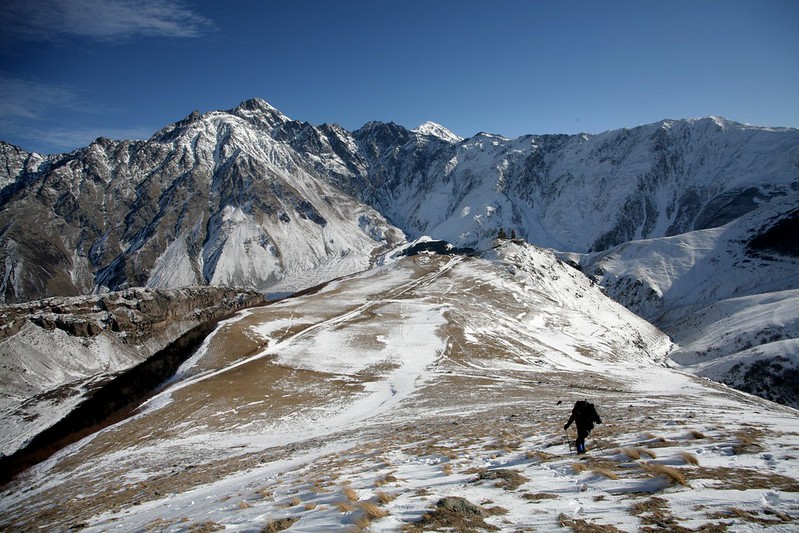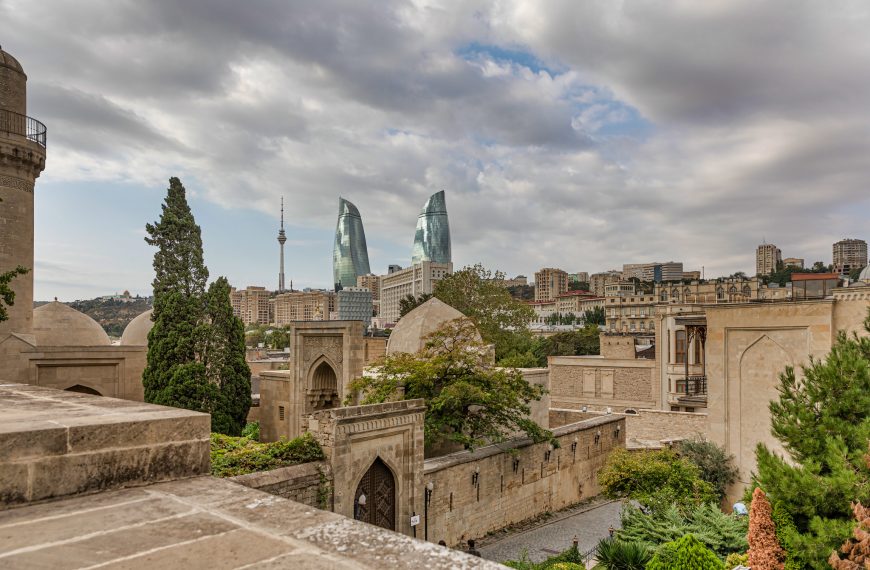Cash
For up to date currency information, check the Currency Converter.
The currency in Georgia is the Lari, but US dollars and Russian rubles are also useful to have on you. They can be exchanged in shops in the larger cities. Traveler’s checks and credit cards are useless.
1GBP = approx. 3.5 GEL
1USD = approx. 2 GEL
1 Euro = approx. 2.5 GEL
The Currency in Armenia is the Dram. Exchange traveler’s checks and US dollars either at the Arm-econo bank in the capital city, Yerevan, or through market traders. There are no ATMs and very few exchange booths in Armenia.
1 GBP = approx. 1000 AMD
1 USD = approx. 500 AMD
1 Euro = approx. 600 AMD
The currency in Azerbaijan is the Azerbaijani Manat. US dollars are also widely accepted. In Baku, traveler’s checks and credit cards may be useful. Some restaurants will give cash advances on cards. Accommodation is still state run and as a result is very basic.
1 GBD = approx.10,000 AZM
1 USD = approx.5,000 AZM
1 Euro = approx.6,000 AZM
For per diem living expenses in all three countries, expect to budget for $20 to $50 a day, although in most places $25 a day will be realistic.
People
Georgia has a population of five million people, largely Georgian (70%), with 20% of the population come from the neighbouring countries of Armenia, Russia, and Azerbaijan and the other 10% comprised of other immigrants.
Dress
Georgia and Armenia are mostly Orthodox countries, although an Armenian Apostolic community can be found in Georgia, while Azerbaijan is a Muslim country. Remember to be respectful and cover up in religious buildings.
Travel
When traveling in Georgia, it’s probably wise to use a combination of air travel, hire car (but beware of car jacking), and train, depending on where you are traveling to and from. Assess the situation once you are there. Travel is made more difficult due to bad road markings and conflict zones.
Health
This part of Central Asia does not pose any particular health risks for the traveler, unless venturing into the border areas where there is currently conflict; be warned that bombings, kidnappings, car jacking and petty crime (such as muggings and pick pocketing) is not uncommon. Georgia is considered one of the most lawless countries in the world and a Brit was recently assassinated there. Research the current situation carefully.
Language
As former Soviet states, Russian is spoken in Georgia, Armenia, and Azerbaijan. In Georgia, all three of the region’s tongues are also spoken. In Armenia, Azeri and Kurdish are spoken in addition to Armenian and Russian. Russian and Azeri are the only languages spoken in Azerbaijan.
Climate and When to Go
May to October is the best time to travel through this part of Central Asia. There will be less snow on the ground in Georgia, Armenia will be carpeted with beautiful wild flowers (although if you’re a skier January or February is a better time to go), and Azerbaijan will be hot – possibly as hot as 38C in peak summer. Avoid Azerbaijan during Ramadan at the end of the year if you’re not Muslim, finding food and coping with the sundown rush home will be difficult. Hordes of tourists are not something you’ll encounter at any time of year in these countries. Visit Georgia in September to October when the Harvest Festival is a big countrywide event and you will see many traditional marriage celebrations taking place.
Food
Georgia is renowned for its food; a combination of spices, herbs, garlic, meat, fruit, nuts, and vegetables characterises the national dishes like example satsivi and chanakhi. Dinner is accompanied by complicated traditions and customs that are led by a tamada (toastmaster). This is often the environment in which disputes are settled peacefully. Georgians are also well known for their wine – head to Kahketi to sample wine at the vineyards.
Visas
Visas for Armenia and Azerbaijan can be obtained on arrival. Visas for Georgia should be arranged before you depart from your home country from the Georgian Embassy, although Commonwealth Independent States (former U.S.S.R.) only require a valid passport.






